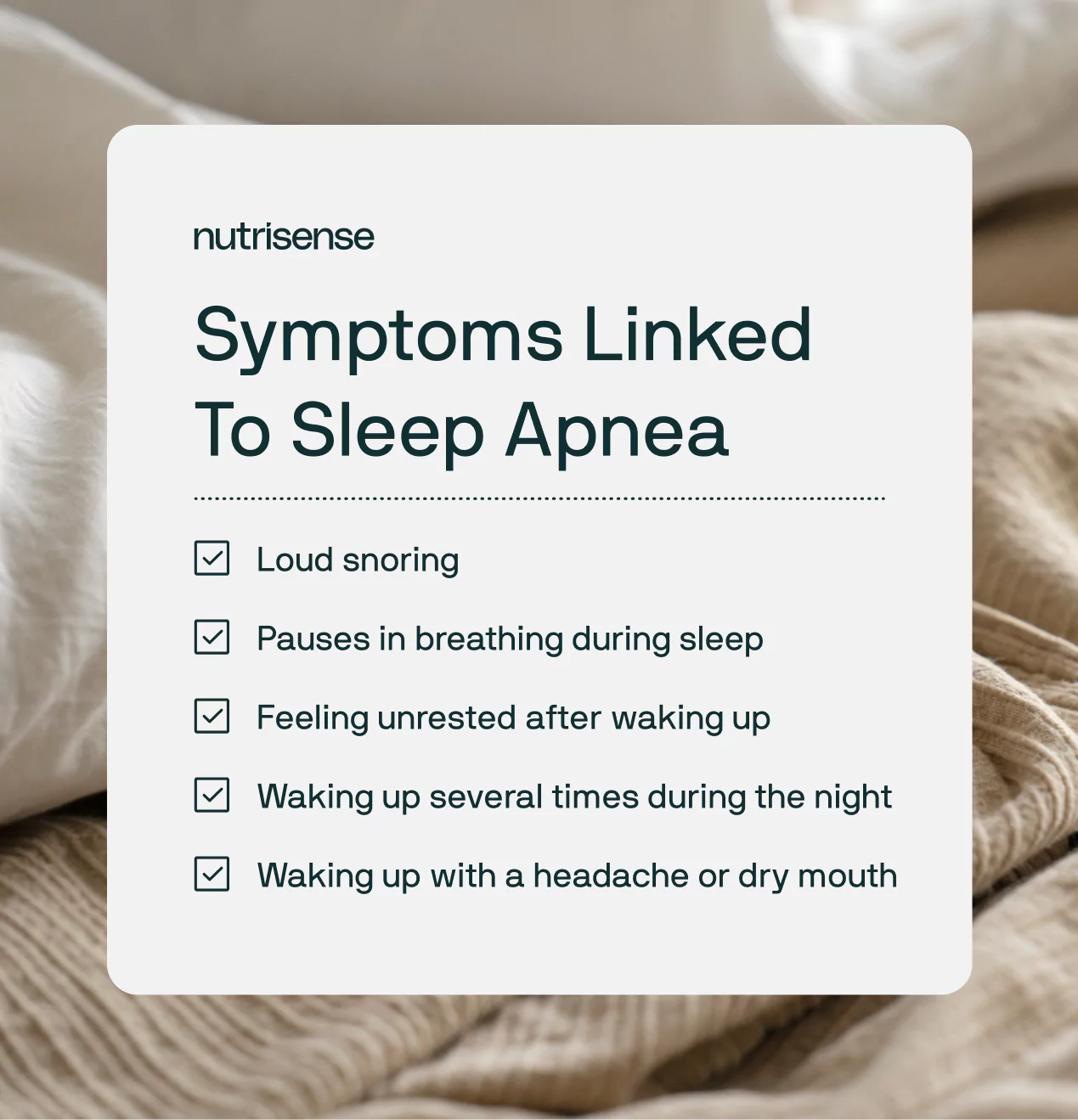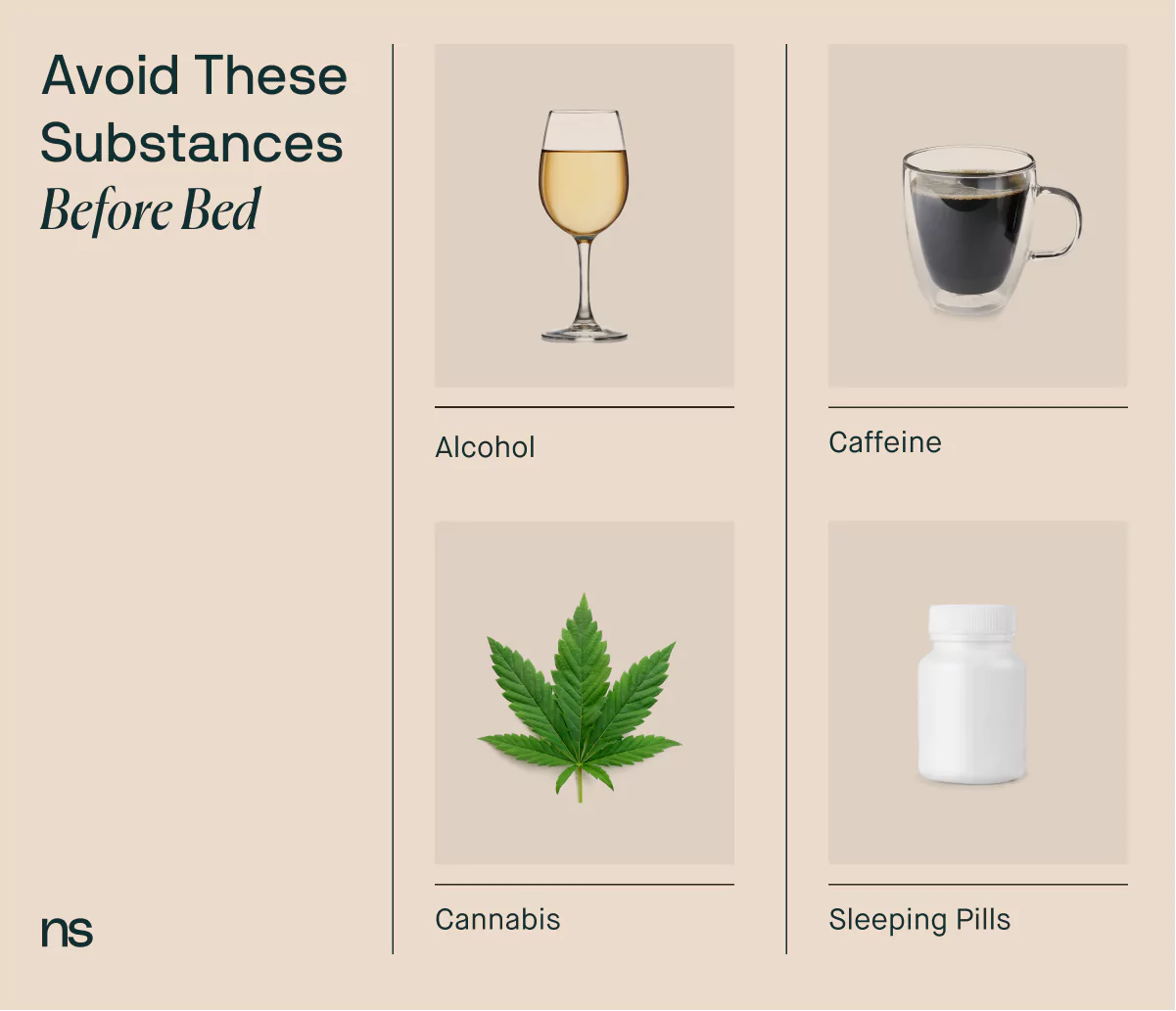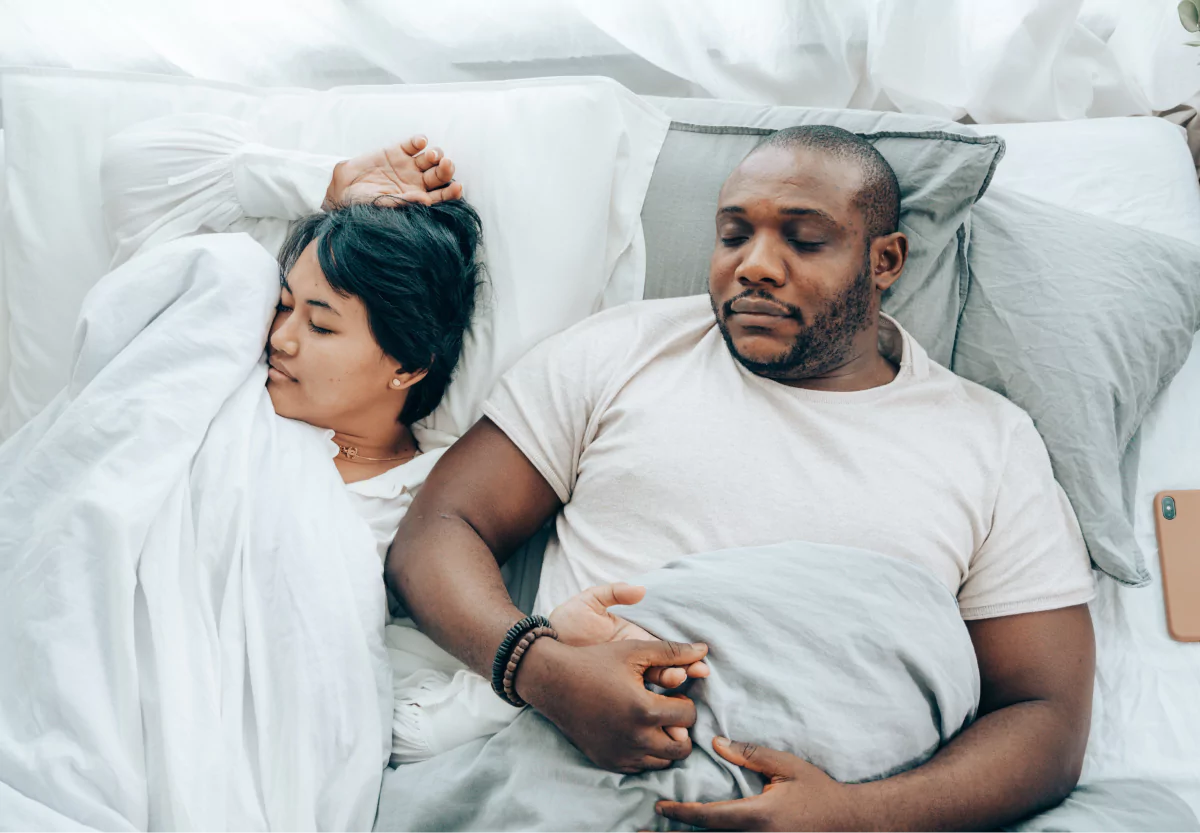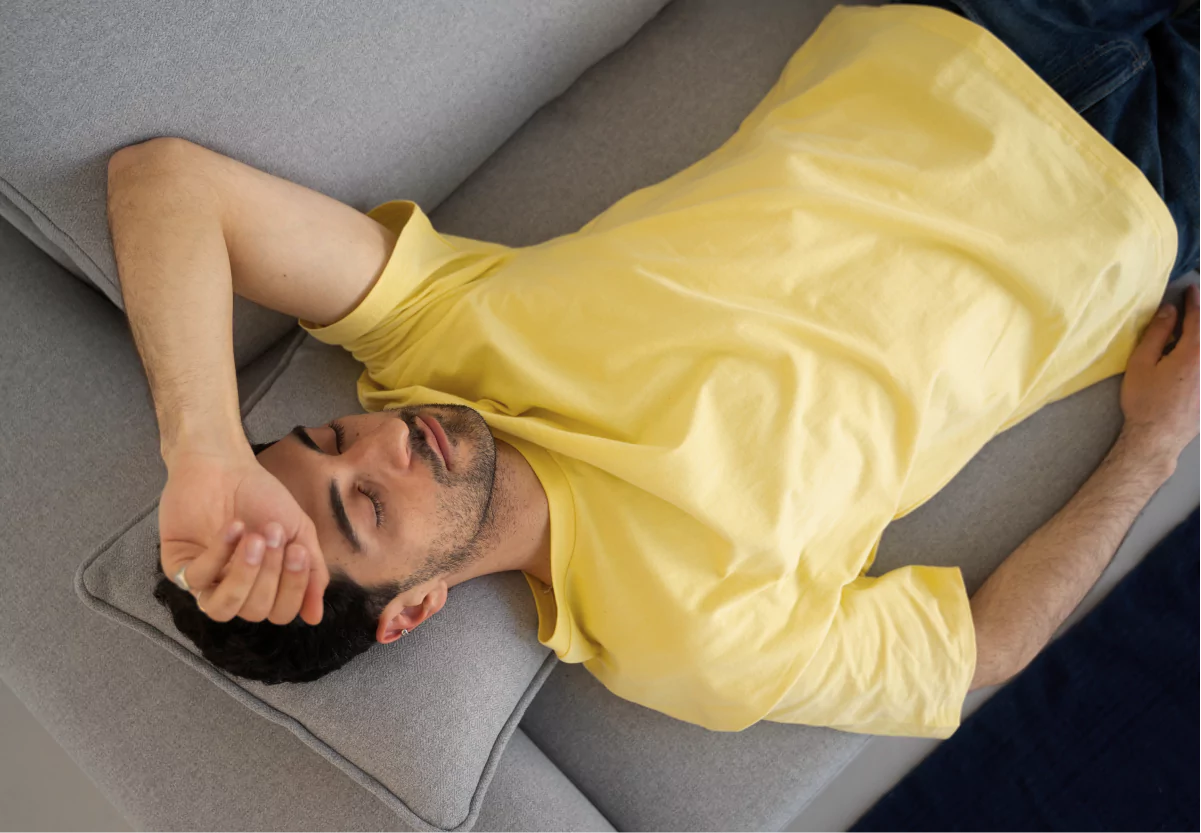Busting the Top 7 Sleep Myths You Probably Believe

Key Takeways
It's no secret that getting a good night's sleep is important for your physical, emotional, and mental health. But a good night’s sleep is often elusive for many of us, encouraging us to look for ways to sleep better and make the most out of our rest time.
However, there are a lot of sleeping myths and misconceptions out there about how to achieve good sleep that you may be falling for without even realizing it. In this article, we’ll debunk the most common sleep myths and let you know how you can get the sleep your body needs to stay healthy and alert.
Myth 1) 5 Hours of Sleep or Less is Plenty of Sleep

This would be wonderful if only it were true—but unfortunately, five hours of sleep is not enough for the majority of people. Although some people can get away with getting insufficient sleep, sleeping for less time than your body needs can lead to a number of health effects and lead to sleep deprivation.
How Many Hours Of Sleep Do You Need?
- According to sleep experts at the National Sleep Foundation, the average adult needs seven to eight hours of sleep per night to maintain good health.
- Getting too little sleep can lead to health problems like obesity, diabetes, depression, and heart disease.
- Teenagers need even more sleep than adults, around eight to 10 hours per night.
- Certain people may need a different amount of sleep, but the average is around eight hours.
Myth 2) Snoring is Normal
Contrary to popular belief, snoring is not normal. While some people snore occasionally, significant snoring on a regular basis can be indicative of a sleep disorder, such as obstructive sleep apnea.
Signs & Symptoms of Sleep Apnea

- Waking up with a headache or dry mouth
- Feeling unrested after waking up
- Waking up several times during the night
- Pauses in breathing during sleep
- Loud snoring
When left untreated, sleep apnea can lead to related health risks such as high blood pressure, heart disease, and diabetes. If you or your partner experience frequent snoring, it’s important to see a doctor for diagnosis and treatment.
Tips for Snoring
If you are snoring frequently, there are some things you can do to reduce the symptoms and improve your sleep.
- Avoid alcohol and certain medications before bed
- Lose weight (if you are overweight)
- Sleep on your side instead of your back
- Elevate your head while sleeping
- Use a humidifier to moisten the air in your room
- Eat a balanced diet and exercise regularly
Myth 3) Mood-Altering Substances Encourage Better Sleep

Mood-altering substances, such as alcohol and sleeping pills, are sometimes assumed to help you get a better night's sleep. That artificial sleeping aid, however, is usually short-lived, if it’s helpful in the first place.
Some mood-altering substances may initially help you relax and fall asleep. However, they may actually disrupt the normal sleep cycle and prevent you from getting the restorative sleep your body needs.
Instead, it is better to create a consistent nighttime routine that incorporates these healthy sleep hygiene habits to help you relax and prepare your body for sleep.Here’s a list of common substances used to help you sleep better, and how they may actually affect the body:
- Alcohol: Initially acts as a depressant, but can disrupt REM sleep, which is a stage of semi-deep sleep that’s been associated with dreaming, learning, and memory consolidation.
- Sleeping pills: May help you fall asleep, but can also be habit-forming and cause drowsiness the next day.
- Caffeine: Timed improperly, caffeine can disrupt sleep cycles, making it harder to fall asleep or stay asleep. Though this isn’t used as a sleep-aid per se, many people may rely on it to compensate for low energy as a result of poor sleep.
- Cannabis: May help some people fall asleep, but can affect people differently. Academic research suggests that THC, the main psychoactive component of cannabis, may suppress REM sleep and decrease sleep latency, or the time it takes you to go from being fully awake to falling asleep.
Healthy Activities That Promote Better Sleep
- Create a relaxing evening routine: take some time before going to bed to relax. Read a book, listen to calming music, or meditate.
- Exercise regularly: exercise is a great way to reduce stress and helps your body to relax. Aim for at least 30 minutes of moderate activity a day. However, overtraining or over-exercising or improper fueling for your exercise may worsen sleep. So it’s important to find the right balance.
- Reduce or avoid caffeine and alcohol: caffeine and alcohol can disrupt your natural sleep cycle and make it harder to fall asleep.
- Keep your bedroom cool: a cool, dark bedroom can help you to fall asleep faster and stay asleep throughout the night.
- Stay away from screens before bed: the blue light from phones, tablets, and televisions can keep us awake by halting natural production of melatonin.
Myth 4) Making Up For Loss Of Sleep During The Weekends

From time to time, you may get caught up with work during the week and feel unrested from a lack of proper sleep. But you can catch up on sleep during the week by sleeping in during the weekends, right?
Unfortunately, this actually isn’t the case. While you may occasionally be able to finally feel rested and renewed by getting some extra hours of sleep under your belt, all that sleeping in on the weekend may not help much if you’re not getting proper rest throughout the week.
In fact, sleeping too much on certain days can actually throw off your circadian rhythm, or your body’s natural wake-sleep cycle. That’s not the whole story either—according to one scientific review, regular disruption of your circadian rhythm can lead to things like:
- Cognitive impairment
- Metabolic syndrome
- Psychiatric illnesses such as depression
Maintaining a consistent sleep schedule, even on the weekends, can help you reduce sleep debt, get better sleep during the night, and avoid excessive daytime sleepiness.
The Optimal Sleeping Schedule
To get the best sleep possible and avoid any sleep problems, it’s important to have a consistent sleep schedule.
- Some research suggests that falling asleep sometime between 10 - 11pm is beneficial for cardiovascular health.
- Most adults should aim for around seven to eight hours of sleep per night and should try to go to bed and wake up around the same time every day.
- Try to avoid sleeping in during the weekends, as this can throw off your circadian rhythm.
- Try out one of these sleeping apps to help keep yourself accountable as you develop a bullet-proof sleeping schedule.
- Take time in the evening to relax and prepare your body for sleep. This may mean doing things like reading, yoga, or listening to calming music.
Myth 5) Hitting The Snooze Button Gives You Extra Rest

Most of us are guilty of this, and as much as you may want to believe it—hitting the snooze button doesn’t give you extra rest. In fact, being awakened by your alarm and not getting up right after it goes off can be detrimental to your sleep schedule and overall sleep quality.
Why Avoiding The Snooze Button Is Your Best Option
When you hit the snooze button, your body enters a light sleep, which can leave you feeling groggy and unrested when you actually do get up. The alarm usually goes off just when REM (rapid eye movement) sleep ends.
By rolling over and trying to sleep after snoozing the alarm, you’re almost guaranteeing REM sleep cycle disruption the second time the alarm goes off. This can rob you of being and feeling rested as well as disrupting your circadian rhythm.
Having a consistent sleep schedule and bedtime routine is key to getting a good night's sleep. This helps to regulate your body's natural wake-sleep cycle, and can help you fall asleep and stay asleep for the night.
So, when you wake up, try to avoid hitting the snooze button and instead, get out of bed and start the day!
Myth 6) A Sign Of Good Sleep Is Little To No Movement

Contrary to popular belief, most people move significantly during their sleep, even when they’re sleeping well. Whether it be through rolling and repositioning or twitching or jerking of limbs, some sort of physical movement during the night is normal.
A lack of movement may actually indicate that someone has not entered the deeper stages of sleep, which can lead to feeling unrested and groggy in the morning. More regular extreme jerky movements, on the other hand, may also indicate more serious health issues.
Why Moving In Your Sleep Is Normal
Moving in your sleep is normal for healthy sleepers, but the cause of such movements is not well-understood. When we sleep, our bodies naturally move through the deeper stages of sleep, which can involve a little twitching and jerking of limbs.
Not to worry though—this is part of your body's natural sleep cycle! These involuntary movements enable your body to move through it to get the restorative sleep you need.
When Sleep Movement Becomes A Concern
While healthy sleep does involve some movement, there are times when it can become a concern. If you notice that you or your partner is having abnormal movements during sleep, you may consider consulting a healthcare professional.
Abnormal sleep movement that should cause concern may include:
- Jerking: Jerking movements of the limbs, such as restless leg syndrome, can indicate that a person may not be in a deep sleep and may be unsettled.
- Extreme shaking: Extreme shaking or convulsions during sleep should be discussed with a healthcare professional, as this can be a sign of something more serious.
Myth 7) Napping Makes Up For Lost Sleep

Have you ever taken an afternoon nap to make up for a lack of sleep the night before? Unfortunately, while napping might feel like a good way to boost energy and alertness, a nap during the day usually doesn’t make up for an entire night of lost sleep.
Naps are not designed to compensate for extra rest when you don’t get enough sleep at night. If you’re feeling tired during the day, taking a short 20-minute nap does help boost your energy levels, but getting at least seven to eight hours of sleep each night is much more important.
The Risks Of Over-Napping
In addition to not being a substitute for a full night’s rest, over-napping can also have a negative impact on your sleep. Taking a very long nap can make you feel groggy and unrested and lead to you getting less sleep the next night.
Napping too late in the day can also interfere with your nighttime sleep, as your body may not be tired enough to fall asleep when bedtime arrives.
Limit Naps To 2 Or 3 Times A Week
Instead of relying on daily naps to make up for lost sleep or chronic tiredness, focus on getting a full seven to eight hours of rest each night. It’s nice to get that extra break and rest in your day, but be careful of not using naps to hide the bigger issue of being sleep-deprived!
Find the right Nutrisense programto turn insight into progress.
Go Beyond Glucose Data with Nutrisense
Your glucose can significantly impact how your body feels and functions. That’s why stable levels are an important factor in supporting overall wellbeing. But viewing glucose isn't enough. Nutrisense, you’ll be able to learn how to use your body's data to make informed lifestyle choices that support healthy living.
One-to-one coaching
Sign up to access insurance-covered video calls to work with a glucose expert: a personal registered dietitian or certified nutritionist who will help tailor your lifestyle and diet to your goals.
Monitor and measure what matters
With the Nutrisense CGM Program, you can monitor your glucose with health tech like glucose biosensors and continuous glucose monitor (CGM)s, and analyze the trends over time with the Nutrisense App. This will help you make the most informed choices about the foods you consume and their impact on your health.
Find your best fit
Ready to take the first step? Start with our quiz to find the right Nutrisense program to help you take control.

Heather is a Registered and Licensed Dietitian Nutritionist (RDN, LDN), subject matter expert, and technical writer, with a master's degree in nutrition science from Bastyr University. She has a specialty in neuroendocrinology and has been working in the field of nutrition—including nutrition research, education, medical writing, and clinical integrative and functional nutrition—for over 15 years.




